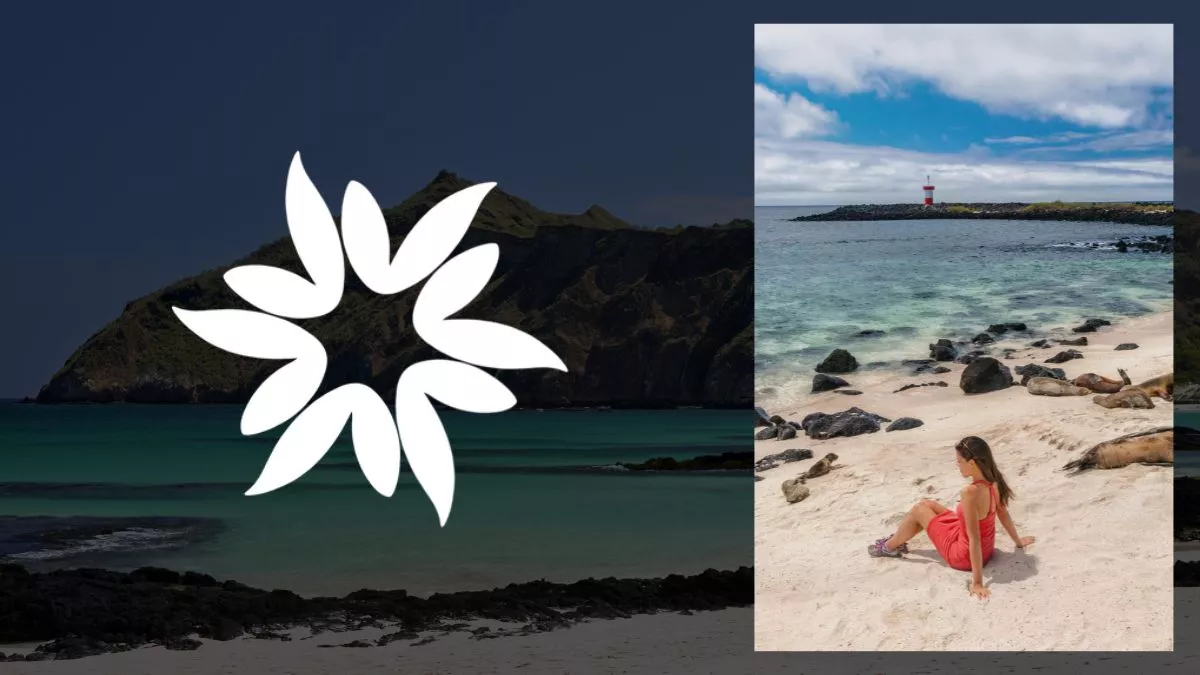Are you thinking about visiting the Galápagos Islands? If so, you’re in for a real treat.
About 600 miles off the coast of Ecuador, these islands are famous for their incredible wildlife, stunning views, and fascinating history.
If you’re planning your first trip to Galápagos or heading back for more, we’ve got all the tips you need.
From the best times to go and must-see islands to essential safety advice, our Galápagos travel guide will help you make the most of your adventure.
So, let’s get started on planning your unforgettable trip!
Key Takeaways
- Choose your accommodation based on your preferred experience – Santa Cruz for convenience, San Cristóbal for local charm, or Isabela for tranquility.
- Always maintain a safe distance from animals and stick to marked trails to protect the fragile ecosystem of the Galápagos Islands.
- Drink bottled water, protect yourself from the sun, and keep your belongings secure for a smooth and enjoyable trip.
Best Time to Visit Galápagos Islands
Deciding when to visit the Galápagos Islands can be tricky since each season offers something unique.
To help you out, we’ve highlighted what you can expect from each time of year. That way, you can pick the season that best matches your interests and make the most of your trip!
Warm Season (December to May)
- Weather: The warm season is characterized by sunny days with occasional rain showers. Temperatures range from 72°F to 86°F (22°C to 30°C), and the ocean is warm and calm, so it’s perfect for snorkeling and diving.
- Wildlife: This season is excellent for seeing marine life. Green sea turtles start nesting in December, and you can witness their eggs hatching by March. January and February are also the best months to see Galápagos penguins actively swimming, and you’ll see marine iguanas displaying bright colors for mating on Española Island.
- Activities: Snorkeling and diving conditions are ideal for calmer seas and good visibility. So, you’ll also have the chance to observe the mating dances of the blue-footed boobies starting in May.
Cool Season (June to November)
- Weather: This period is cooler and drier, with temperatures ranging from 66°F to 79°F (19°C to 26°C). The seas are rougher, and the water is cooler, so you might need a wetsuit for aquatic activities.
- Wildlife: The cooler waters bring nutrient-rich currents that attract a variety of marine species, including whales and dolphins. This is the best time to see the famous blue-footed boobies performing their mating dance and the arrival of the waved albatross. Additionally, sea lions give birth from August to November, making it a great time to see playful pups.
- Activities: While the water is colder, the increased marine activity makes snorkeling and diving rewarding. You can also enjoy hiking in cooler weather and watching the island’s landscapes come alive with various species.
How to Get There in the Galápagos Islands
Getting to the beautiful Galápagos Islands takes a bit of planning, but it’s well worth the effort! Since they’re about 600 miles off the coast of Ecuador, there are a few steps you’ll need to follow to get there smoothly.
So, let’s walk through the process so you can quickly start your adventure.
Step 1: Fly to Mainland Ecuador
First, you need to fly into Ecuador, either to Quito (Mariscal Sucre International Airport) or Guayaquil (José Joaquín de Olmedo International Airport). Both cities have frequent flights from major international hubs like Miami, Houston, New York, and Madrid.
Step 2: Take a Domestic Flight to the Galápagos
You’ll fly domestically to the Galápagos Islands from Quito or Guayaquil. There are two main airports in the Galápagos: Seymour Airport (GPS) on Baltra Island and San Cristóbal Airport (SCY) on San Cristóbal Island. The flight from Quito to the Galápagos takes about 3.5 hours, including a short stop in Guayaquil.
- Baltra Airport is the gateway to Santa Cruz Island, the most populous island, and a hub for many tours.
- San Cristóbal Airport serves the island of the same name and is closer to some of the eastern islands.
Step 3: Arrival Procedures
When you arrive at the airport, you will need to go through a few special processes due to the protected status of the Galápagos:
- Transit Control Card: Before your flight, you must obtain a Transit Control Card (TCT) for $20 at the airport in Quito or Guayaquil. This card is mandatory for all visitors.
- Luggage Inspection: Your luggage will be inspected to prevent the introduction of invasive species. Items like fresh fruits, seeds, and certain animal products are prohibited.
- National Park Entry Fee: Upon arrival in the Galápagos, you must pay a $100 National Park entry fee (in cash).
Step 4: Transfers and Getting Around
Getting around the Galápagos Islands is easy once you know the ropes. Here’s how to handle transfers and make your way to your destination:
- From Baltra: If you land at Baltra Airport, you’ll take a short bus ride to the ferry terminal, then a ferry to Santa Cruz Island, followed by a bus or taxi to Puerto Ayora.
- From San Cristóbal: If you land at San Cristóbal, it’s a short taxi ride to the main town of Puerto Baquerizo Moreno.
Alternative: Arriving by Sea
Though rare, it is technically possible to reach the Galápagos by cargo ship from Guayaquil, but this journey takes several days and lacks the comforts of a passenger flight.
Once on the islands, you can move between them by ferries, speedboats, or small planes, depending on your budget and time.
Top Islands to Visit and Activities
The Galápagos Islands are a stunning archipelago, with each island offering unique experiences and wildlife.
For a memorable Galápagos island vacation, we’ve put together the best islands to visit and the best activities to enjoy.
Santa Cruz is the central hub for tourists visiting the Galápagos. It has the most developed infrastructure, including hotels, restaurants, and shops, especially in Puerto Ayora, the main town.
Top Activities:
- Charles Darwin Research Station: Learn about the conservation efforts in the Galápagos, see giant tortoises, and learn about the breeding programs aimed at preserving these iconic animals.
- Tortuga Bay: This bay is a beautiful white sand beach perfect for relaxing, swimming, and spotting wildlife like marine iguanas, sea turtles, and various birds. You can also kayak in the bay’s calm waters.
- Highlands of Santa Cruz: Explore the lush highlands, where you can see giant tortoises in the wild, visit lava tunnels, and enjoy stunning island views.
San Cristóbal is known for its charming town, beautiful beaches, and rich history. It’s also home to the provincial capital of the Galápagos, Puerto Baquerizo Moreno.
Top Activities:
- Playa Mann and La Lobería: Relax on these beaches, where you can often see sea lions lounging in the sun. La Lobería is also an excellent spot for snorkeling.
- Kicker Rock (León Dormido): This famous rock formation offers some of the best snorkeling and diving in the Galápagos. Here, you can swim with sharks, rays, and fish in the crystal-clear waters.
- Interpretation Center: Learn about the history, ecology, and culture of the Galápagos Islands through exhibits and displays.
The largest of the Galápagos Islands, Isabela, is less developed and offers a more rugged, natural experience. It’s known for its volcanic landscapes and abundant wildlife.
Top Activities:
- Sierra Negra Volcano: Hike to the top of this massive volcano for incredible views of its vast crater, one of the largest in the world. The hike is challenging but rewarding.
- Los Tuneles: A popular snorkeling site where lava formations create tunnels and arches in the water. You can see sea turtles, rays, and even seahorses.
- Concha de Perla: A calm bay near Puerto Villamil, perfect for snorkeling with sea lions, penguins, and colorful fish.
Fernandina is the youngest and one of the most pristine islands in the Galápagos. It is largely untouched by humans, making it a haven for wildlife.
Top Activities:
- Punta Espinosa: The leading visitor site where you can walk among large colonies of marine iguanas, see the flightless cormorant, and spot Galápagos hawks. The area is also great for snorkeling, where sea lions and turtles might be encountered.
- Wildlife Watching: Due to its isolation, Fernandina is home to many unique species well-adapted to the harsh volcanic environment.
Also known as “Bird Island,” Genovesa is a remote island in the northern part of the archipelago, famous for its large bird colonies.
Top Activities:
- Darwin Bay: A small beach inside a volcanic caldera where you can see red-footed boobies, frigatebirds, and swallow-tailed gulls. It’s a fantastic place for birdwatching and snorkeling.
- El Barranco (Prince Philip’s Steps): This steep climb up a rocky path leads to a plateau where you can see short-eared owls and more bird species in their natural habitat.
Where to Stay in The Galápagos Islands
When planning where to stay in the Galápagos Islands, the options vary depending on your budget, the type of experience you’re looking for, and which islands you plan to explore.
Santa Cruz Island
Puerto Ayora is the main town and the best place to stay on Santa Cruz Island. This town offers the broadest range of accommodations, from budget hostels to luxury hotels. If you want easy access to amenities like restaurants, shops, and tour operators, staying here is ideal.
- Budget Option: Galapagos Dreams Hostel – Perfect for budget travelers, offering dormitory-style rooms close to main attractions.
- Mid-Range Option: Hotel Galapagos Suites B&B – A comfortable choice with bright, spacious rooms and a great breakfast.
- Luxury Option: Angermeyer Waterfront Inn – A high-end hotel on the water, offering unique stays with private piers and stunning views.
San Cristóbal Island
Puerto Baquerizo Moreno is the only town and the best area to stay on San Cristóbal Island. Compared to Puerto Ayora, this town has a more local feel, with a good mix of accommodations and local eateries.
- Budget Option: Hostal Terito – this cozy hostel is close to Playa de Oro and has English-speaking staff to make your stay easier.
- Mid-Range Option: Hostal Cattleya – a family-owned hotel with comfortable rooms and beautiful views.
- Luxury Option: Galapagos Sunset Hotel – offers luxurious accommodations with ocean views and top-notch services.
Isabela Island
Puerto Villamil is the main town on Isabela Island. It is known for its relaxed atmosphere and proximity to some of the island’s best natural attractions.
- Budget Option: Hostal El Pinzon – a well-located, budget-friendly option with private rooms and a pool.
- Mid-Range Option: Capitan Max B&B – a bed and breakfast known for its spacious rooms and excellent service.
- Luxury Option: Iguana Crossing Boutique Hotel – offers stunning sea views, a pool, and eco-friendly facilities, making it one of the best places to stay in Isabela.
Floreana Island
Floreana is the least populated and most remote of the inhabited islands, offering a truly peaceful experience.
- Budget Option: Black Beach House – this eco-friendly accommodation offers a unique and tranquil experience, great if you want to immerse yourself in nature.
- Mid-Range Option: Posada Floreana – a well-regarded option with comfortable rooms, a focus on sustainable practices, and a pleasant atmosphere.
Note: Floreana Island has limited high-end accommodations compared to other islands, so luxury options may involve staying on a nearby island with high-end facilities while visiting Floreana for day trips.
Safety Tips for Your Trip to the Galápagos Islands
We want your Galápagos Islands adventure to be smooth and stress-free, so here are some safety tips to help you stay relaxed and make the most of your trip.
- Vaccinations: Make sure you are up-to-date with routine vaccinations like measles, mumps, and rubella (MMR), diphtheria-tetanus-pertussis, and hepatitis A. If you plan to visit rural areas in mainland Ecuador before or after your trip, consider vaccinations for typhoid and hepatitis B as well.
- Food and Water Safety: Drink bottled or boiled water to avoid stomach issues. Stick to cooked food, and avoid eating raw vegetables or street food that might not have been prepared with clean water.
- Respect Wildlife: The Galápagos Islands are a protected area with unique and sensitive wildlife. Maintain a safe distance from animals, do not feed them, and never touch or disturb them. This helps preserve the animals’ natural behavior and protects you from potential bites or scratches.
- Stay on Marked Trails: Always stay on the marked trails when exploring the islands. This helps protect the fragile environment and ensures you don’t get lost or injured in remote areas.
- Swimming and Snorkeling: Always swim and snorkel in designated areas and follow the guidance of local tour operators. Ocean currents can be strong, and marine animals may require caution.
- Boat Travel: If you are traveling between islands by boat, follow the crew’s safety instructions. Wear life jackets when recommended, and be aware of your surroundings to avoid accidents.
- Sun Exposure: The equatorial sun is powerful in the Galápagos. To protect your skin, use a high-SPF sunscreen, wear a hat, and consider long-sleeved clothing. Dehydration can be a risk, so drink plenty of water throughout the day.
- Crime: The Galápagos Islands are generally safe, with low crime rates. However, petty theft can happen, especially in busier areas like Puerto Ayora. Keep your belongings secure, avoid carrying large amounts of cash, and use hotel safes when available.
- Emergency Contacts: If needed, contact local authorities or emergency services. Having travel insurance covering medical emergencies and accidents is also a good idea.
- Carry Copies: Keep copies of your passport, travel insurance, and other essential documents separate from the originals. This can be useful in case of loss or theft.
Ready to Explore the Galápagos Islands?
Now that you’ve learned about the best places to stay, top islands to visit, and essential safety tips, you can plan your Galápagos trip.
Santa Cruz Island and its bustling town of Puerto Ayora are hard to beat if you’re after a lively spot with everything you need. You’ll be right near great food, shops, and some fantastic wildlife.
For a taste of local life and natural charm, San Cristóbal Island is the place to be. It’s perfect for those who love adventure and want to explore beyond the usual spots.
Are you looking for a peaceful retreat with amazing views? Isabela Island offers just that – its serene vibe and stunning landscapes are ideal for families and nature lovers who want to relax.
No matter which island you choose, remember the safety tips to make your trip as smooth as possible. The Galápagos Islands are an incredible destination; with some preparation, you’ll have a trip to remember.
So why not start planning now? The Galápagos Islands are ready to welcome you!
P.S. If you’re craving a more laid-back vacation with everything taken care of, check out our guide to the best all-inclusive resorts in the world.








